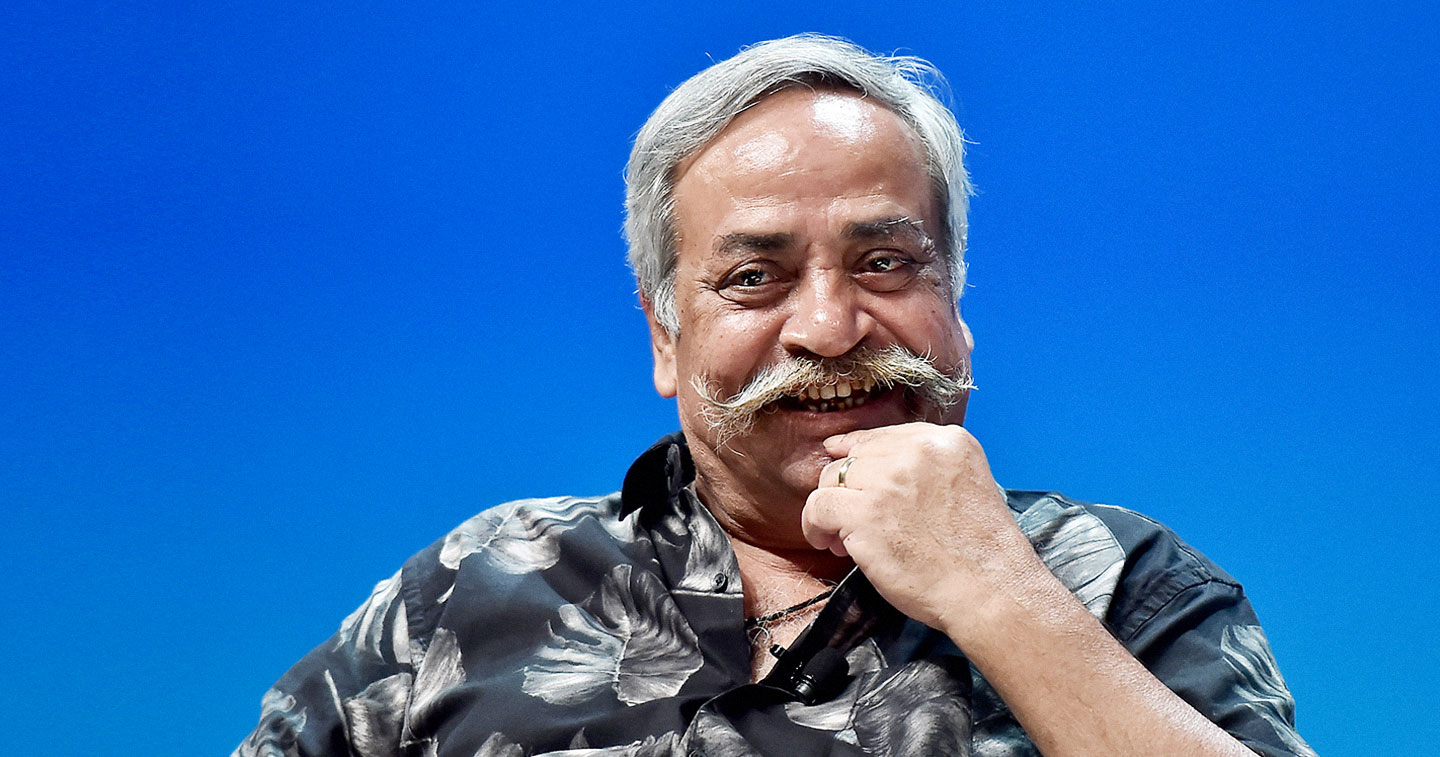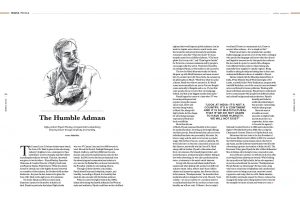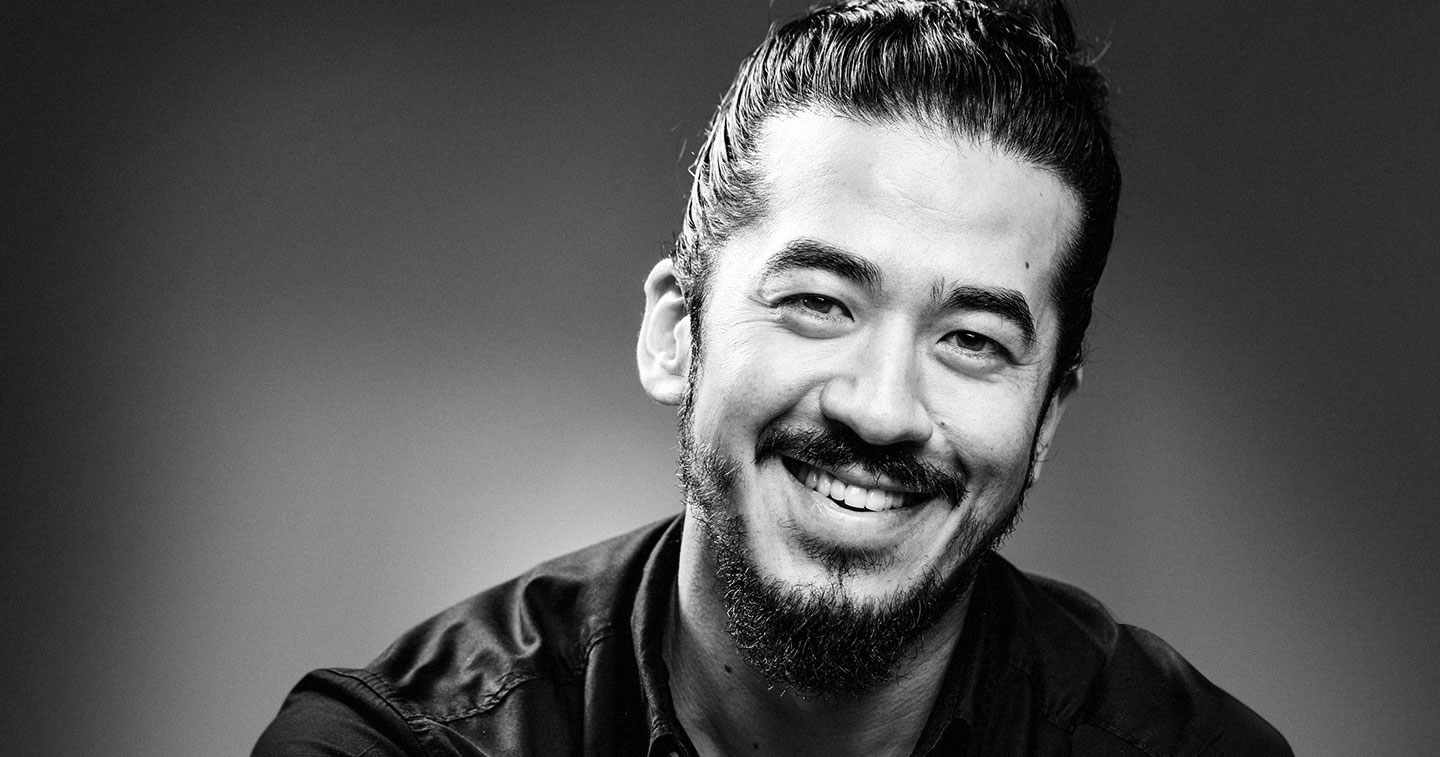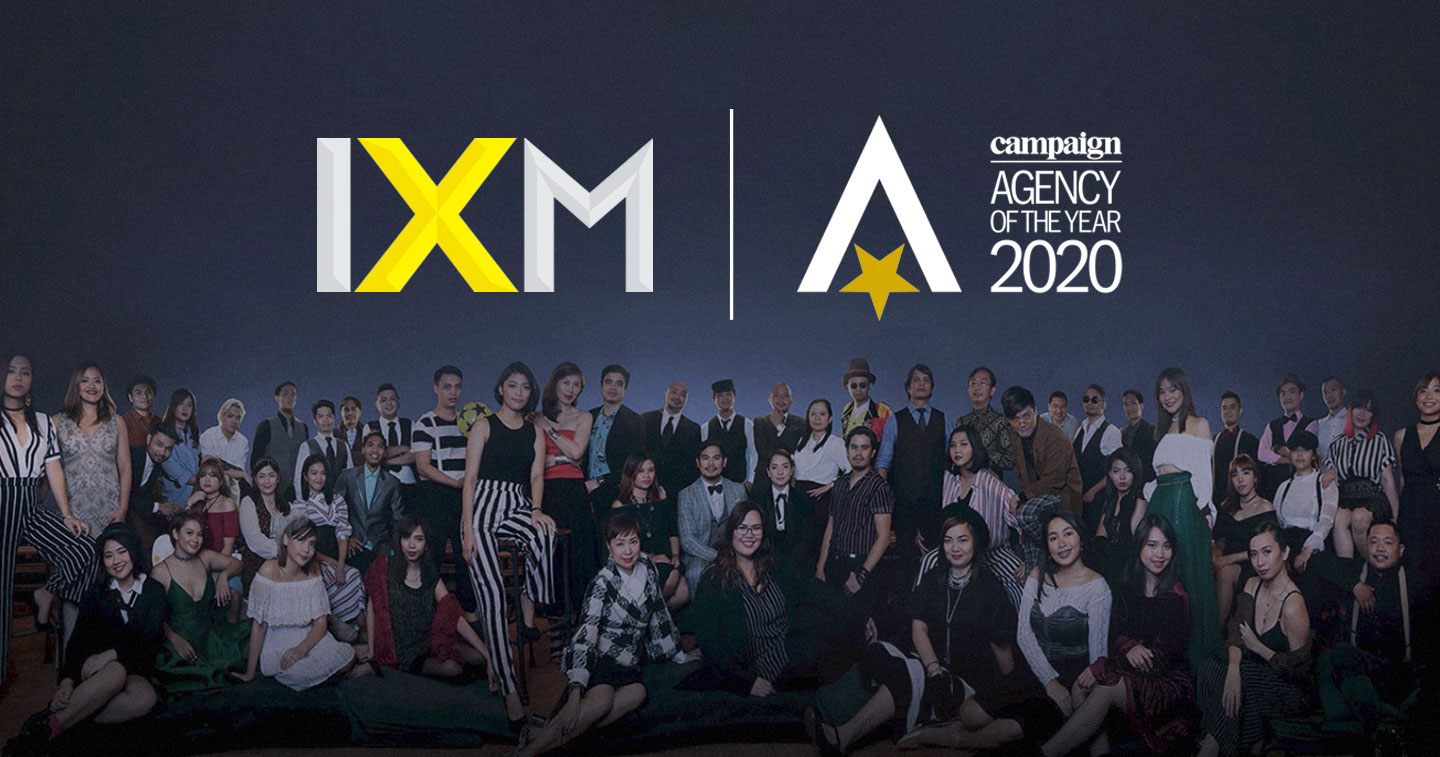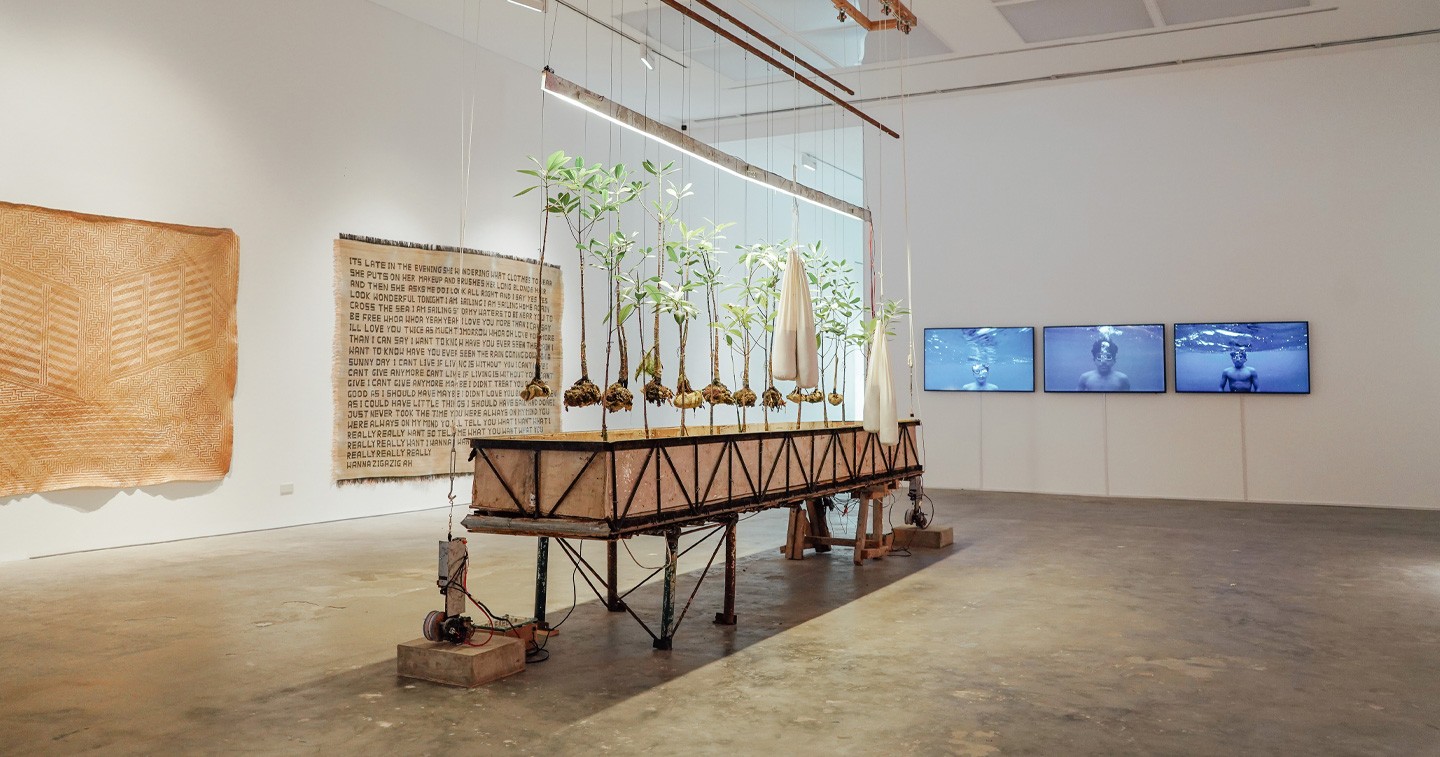The Cannes Lions’ Lifetime Achievement Award, the Lion of St. Mark is given to the advertising industry’s brightest stars, a testament to these individuals’ creative triumphs and their efforts in pushing the industry forward. In 2018, the award was given to two brothers — Piyush Pandey, Executive Chairman & Creative Director of Ogilvy South Asia and Prasoon Pandey, Film Director. While the award in itself is already one of the highest honors bestowed on a member of the industry, the brothers hold another distinction – they are the first Asians to be given the Lion of St. Mark in the eight years of its existence.
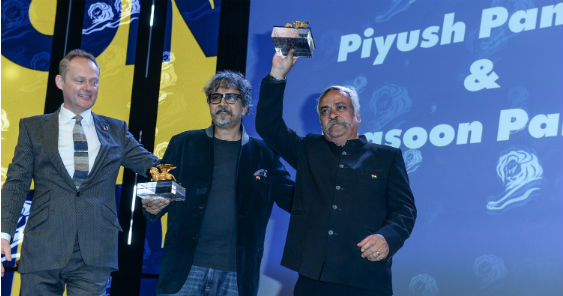
A pair of Lions: Piyush and Prasoon Pandey win the Lion of St. Mark
No doubt, Piyush and Prasoon have made illustrious careers for themselves in India’s ad land. Piyush in particular has helped Ogilvy India win over 47 Cannes Lions and over 800 awards in total. His ads for Fevicol, Sunlight Detergent, Luna Moped, Cadbury, and Dairy Milk have become classics and earned household-name status for the brands. In 2016, he was the rst professional from the advertising and communications industry to ever receive the Padma Shri, an honor bestowed by the President of India to outstanding citizens.
Through all these showers of accolades, Piyush himself espoused simplicity, respect, and humility. According to Piyush, it is humility that made his ads resonate with the Indian audience.When he started in Ogilvy India in the 1980s, Indian advertising was heavily influenced by Western styles and aesthetics. Piyush could have written brilliant taglines that would impress global audiences, but he went for simpler, more down-to-earth words, ones that would be understood instantly by any Indian consumer. Lines like “Chal meri Luna” for Luna mopeds came from a childhood phrase, “Chal mere ghode (Let’s step on it),” and “Dum laga ke haisha” for Fevicol is a common statement said by people to encourage collective action. This kind of humility, according to Piyush, is what makes an ad successful.
The love for Hindi blossomed early for Piyush. He grew up with Hindi literature and music around him. In an interview with Verve India, he summed up his philosophy on Hindi: “Hindi was what we spoke at home. Hindi was what we emoted in. So Hindi comes most naturally to me, just as I’m sure Bengali comes naturally to Bengalis and so on. It’s just that some people choose to leave their own language behind, and that is the biggest mistake they make.”Piyush began his career at a time when TV was becoming widespread and popular among the masses and as such, shows and ads were being written in Hindi. He, along with Ogilvy India, led the charge for advertising messages expressed in Hindi and local sensibilities.
More than the use of Hindi, Piyush expressed humility in his respect for multiculturalism. Growing up with eight siblings and their parents, Piyush learned that each and every individual has their own personality. His sister, Ila, loves to sing, and she went on to become a popular singer. His brother, Prasoon, practices debating. He would also later on become a successful ad man and lm director, and would win the Lion of St. Mark along with his brother. Piyush’s other sisters had their own interests. He himself played cricket, and would become a professional player.
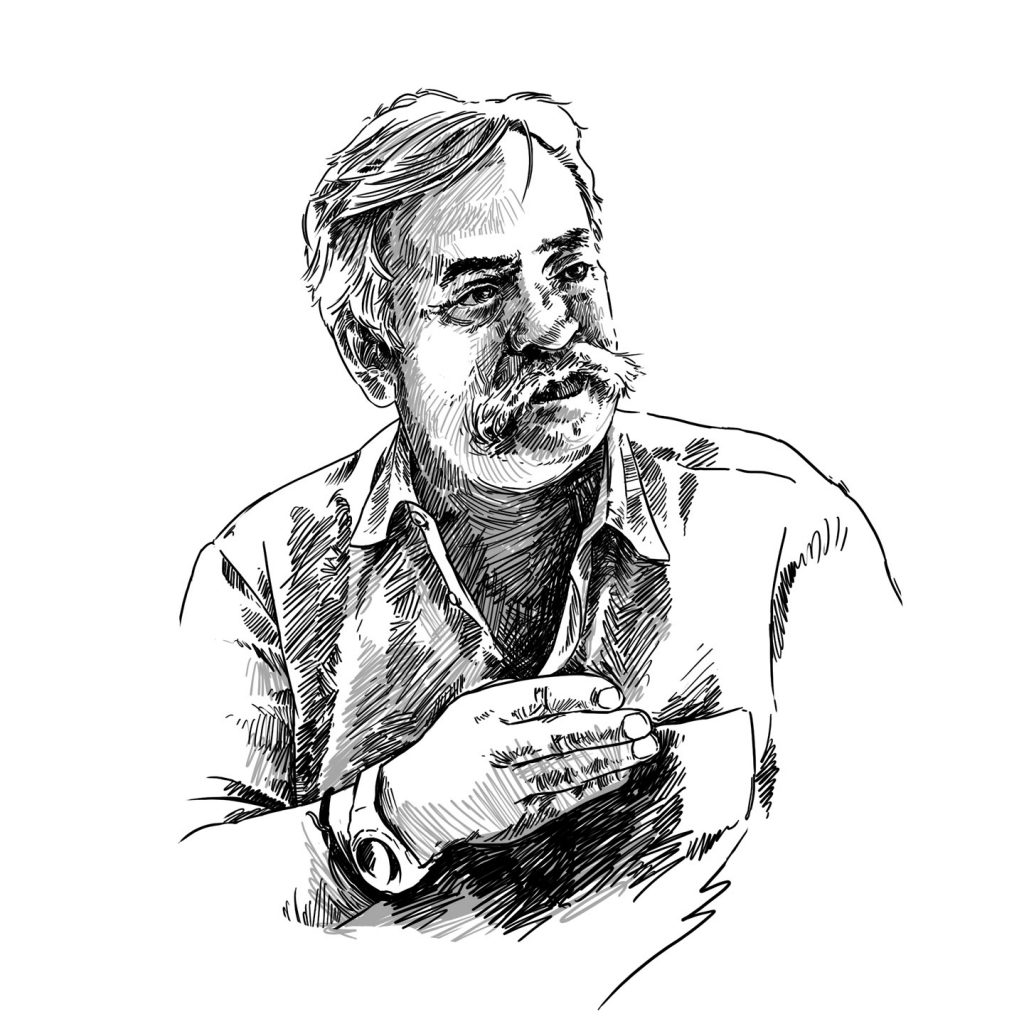
Illustration by Sam Macaisa
Before falling in love with advertising, he was also a professional tea taster, a testament to the man’s varied interests. Living with diverse individuals made Piyush understand what dealing with people from different cultures meant. India, with its more than a billion citizens and numerous regions, has diverse cultures. In his memoir, “Pandeymonium,” he described how multiculturalism is integral to his work. He said, “look at India — it’s not a country; it’s a continent and it is so multicultural that if we do not learn to have some humility we will not exist. If I have to live in today’s world and if I have to communicate in it, I have to respect other cultures — it is as simple as that.”
When his ads had to be translated into another Indian language, he spends a lot of time with a colleague who speaks that language and learns what the cultural and linguistic nuances are for that particular audience. He also made it a point to consult with colleagues from different Indian cultures when making ads, especially those targeted to specific regions. Being humble in asking for help and taking time to learn and understand different cultures is valuable to Piyush.
He has worked with the Bharatiya Janata Party of India, Prime Minister Ranil Wickremesinghe of Sri Lanka, and with India’s Polio Eradication program with Amitabh Bachchan, one of the country’s most acclaimed actors and himself a former politician. Working with these individuals and groups, Piyush had to understand how to communicate with people from different ethnic and cultural backgrounds and professions. Piyush’s humility and belief in multiculturalism helped him produce outstanding work for these groups.
Since his start as a humble accounts executive in Ogilvy India and six years later as a copywriter, he has risen to become the agency’s National Creative Director in 1994 and inducted into Ogilvy’s Worldwide Board in 2006. He is today the Chairman & Creative Director of Ogilvy South Asia. He became the first Asian to be Jury President of the Cannes Film Festival in 2004. In 2012, he received the CLIO Lifetime Achievement Award, the first for any Asian, and the Lifetime Achievement Award by the Advertising Agencies Association of India (AAAI). The Economic Times gave Piyush the title of Most Influential Man in Indian Advertising for nine consecutive years.
And so Piyush continues on with his work even a er receiving lifetime achievement awards. While holding the top position at Ogilvy India, he has also appeared in movies and authored his memoir, “Pandeymonium: Piyush Pandey on Advertising”. He has come a long way from a noisy home in Rajasthan and a professional cricket career to being an account executive turned copywriter and today, the Lion of St. Mark Awardee. His humility and innate respect for diverse cultures has changed the Indian advertising industry forever and set the example for future ad men and women to come.
This article first appeared on the 75th issue of adobo magazine: Mobile.

